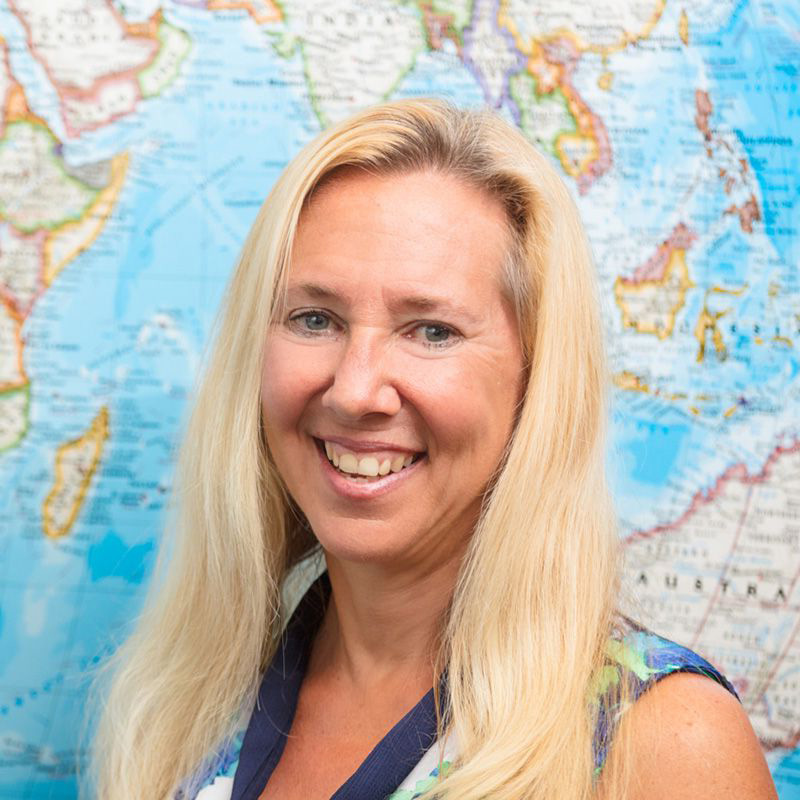Amy Farmer
 University Professor of Economics
University Professor of Economics
Ph.D., Duke University, Economics
M.A., Duke University, Economics
B.S., Purdue University, Mathematics
afarmer@walton.uark.edu
In her own words ...
If I weren’t teaching, I’d be…doing development work in Africa. I’d be outside, that I know for sure.
My favorite thing about working with honors students is…their passion to make a difference in the world. I think this generation has that more than mine did.
Something most people don’t know about me is… I have a cabin in Deer, Arkansas, and I spend a lot of my weekends building trails. In the backyard I’ve built a couple miles of trail that I maintain…it’s my Zen.
One thing you can always find in my fridge…Cashew milk! It’s a little unusual, but that’s always in there.
My favorite place to travel…Belize. My most inspiring place is in Africa, but in terms of fun and passion? Belize.
About her research:
Amy Farmer has a passion for helping people. So, after earning a bachelor of science in mathematics, she began searching for a more community-oriented application of her skills, which is how she stumbled upon game theory. The match that sparked her interest? Baseball. “I was talking to a friend of mine about the economics of baseball; arbitration and negotiation. Players don’t have free agency,” Farmer recalls. This led to a central question: “How does that change the negotiation?” Over time, this observation transformed into an interest in the economics of conflict, specifically within the law.
Most recently Farmer has focused on pre-trial negotiations and strategic bargaining. She is looking at the ways asymmetric information – that is, when one party on trial has more “bargaining chips” than the other – can be transmitted. She primarily creates models of asymmetric information, then uses these models to facilitate constructive, thorough communication between parties. The ultimate goal is to encourage people to settle in lawsuits.
Farmer implements these perspectives in her honors colloquium “The Economics of Life,” in which students view various life events – from the high drama of birth, marriage, divorce and death down to more menial decisions such as the division of household chores – through an economic lens. “Everything we do is because we’re responding to an incentive,” Farmer explains. “The result of all our incentives gives us the world we live in.”
Her involvement with international service learning dates to a 2005 vacation in Peru, where she was struck by the upsetting juxtaposition of development and poverty: a mass of modern machinery sat unused at the base of Machu Picchu while laborers were doing all the construction work by hand. “Kids from Arkansas have got to see this,” she remembers thinking. “Seeing economics in action, development in action, and poverty will get these kids out of their bubble; I just have to do this.” This epiphany prompted Farmer to team up with professors across campus to develop faculty-led, interdisciplinary programs in Belize, Mozambique, and Vietnam.
Farmer is an indispensable resource for honors students interested in international development and the economics of family, and primarily supervises theses on these subjects. One student recently homed in on family leave policies, and how such policies – or their absence – affected women’s career decisions. Another student is working with a non-profit in Peru to help them develop a sustainable business model. Her students’ options continue to expand: Farmer is sending five students to Swaziland next summer to work on honors theses on economic policy development.